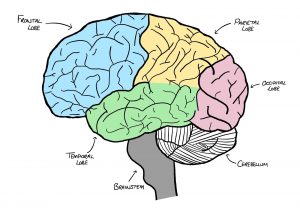What is that ringing in my ears?
Tahmid Kabir
What is Tinnitus?
Tinnitus is a condition which describes the experience of hearing sounds without the presence of an external cause of the noise. The term is derived from the Latin word ‘tinnire’ which means ‘to ring’. The nature of these sounds can vary from person to person, but usually are described as ringing, hissing, or humming, and can occur either in one or both ears. It is quite a common condition and is estimated to affect 15-20% of the world’s population and though it’s more common in older age groups, tinnitus can affect all age groups. Whilst in most cases, people are not significantly affected by this condition and can continue with their normal day-to-day lives, there are some more severe cases, around 1-3% of total cases, which require further treatment.
How is it caused?
There are mainly two classifications in which tinnitus can be put into, which are objective tinnitus and subjective tinnitus. Objective tinnitus is less common and occurs due to an internal source for generating noise, which can often be heard by another person who is examining the patient using a stethoscope. The internal source of sound can be turbulent blood flow in the carotid artery or jugular vein, which are near the ears. This means that the blood is not flowing smoothly as it should be and is irregular; usually, the cause for this disruption tends to be build-up of fat in the blood vessel, which act like an obstruction. Subjective tinnitus, on the other hand, is much more common and occurs with disorders of the ear such as sensorineural hearing loss (which simply describes hearing loss primarily due to damage to the inner ear or the sensory organ found within, known as the cochlea), obstruction of the ear canal and infections.
 Whilst the cause of the humming sound in objective tinnitus is more easily understood and attributed to the disrupted blood flow in blood vessels near the ear, the reason as to which noise can be heard in subjective tinnitus is a bit less simple and in fact, shows how complex the brain really is. For a person without tinnitus, the ears send a large amount of information to the auditory cortex, which is a part of the brain responsible for filtering out the unnecessary noise and putting the rest of the information together in a way we can then understand. However, in the person with tinnitus, the way the brain deciphers the information from the ears is quite different. In fact, scientists have discovered that it is the brain itself which generates the sounds heard in tinnitus! Using cutting edge technology such as positron emission tomography and magnetic resonance imaging, also known as PET and MRI scans, it was discovered that when the input from the cochlea into the auditory cortex was reduced due to reasons as mentioned before, abnormal activity in the brain was noted which leads to sensation of tinnitus.
Whilst the cause of the humming sound in objective tinnitus is more easily understood and attributed to the disrupted blood flow in blood vessels near the ear, the reason as to which noise can be heard in subjective tinnitus is a bit less simple and in fact, shows how complex the brain really is. For a person without tinnitus, the ears send a large amount of information to the auditory cortex, which is a part of the brain responsible for filtering out the unnecessary noise and putting the rest of the information together in a way we can then understand. However, in the person with tinnitus, the way the brain deciphers the information from the ears is quite different. In fact, scientists have discovered that it is the brain itself which generates the sounds heard in tinnitus! Using cutting edge technology such as positron emission tomography and magnetic resonance imaging, also known as PET and MRI scans, it was discovered that when the input from the cochlea into the auditory cortex was reduced due to reasons as mentioned before, abnormal activity in the brain was noted which leads to sensation of tinnitus.
What to do if you think you have tinnitus?
 Fortunately, tinnitus is in most cases handled quite well, and rarely is an indication for a serious disorder. However, there are some signs which can accompany tinnitus and allude to more serious cases, which require emergency treatment, and these include tinnitus after a head injury, or tinnitus with sudden hearing loss, weakening of the muscles of the face or vertigo (feeling as if the world is spinning around you). In such case, your first response should be to call 999 or go to the nearest A&E.
Fortunately, tinnitus is in most cases handled quite well, and rarely is an indication for a serious disorder. However, there are some signs which can accompany tinnitus and allude to more serious cases, which require emergency treatment, and these include tinnitus after a head injury, or tinnitus with sudden hearing loss, weakening of the muscles of the face or vertigo (feeling as if the world is spinning around you). In such case, your first response should be to call 999 or go to the nearest A&E.
Experiencing the symptoms of tinnitus first time can understandably be quite a stressful and distressful experience, and so it is recommended to seek professional help and book an appointment with the GP when encountering such symptoms. There are also a range of techniques and things a person with tinnitus can try to help them cope with tinnitus – the main focus is relaxation and mindfulness, and so there is an emphasis on exercises such as deep breathing and yoga. Further advice and information can be found on the NHS and British Tinnitus Association websites.
Overall, tinnitus can be quite distressing at first, but fortunately, a large majority of people learn to cope with it and can live their day-to-day life normally.
